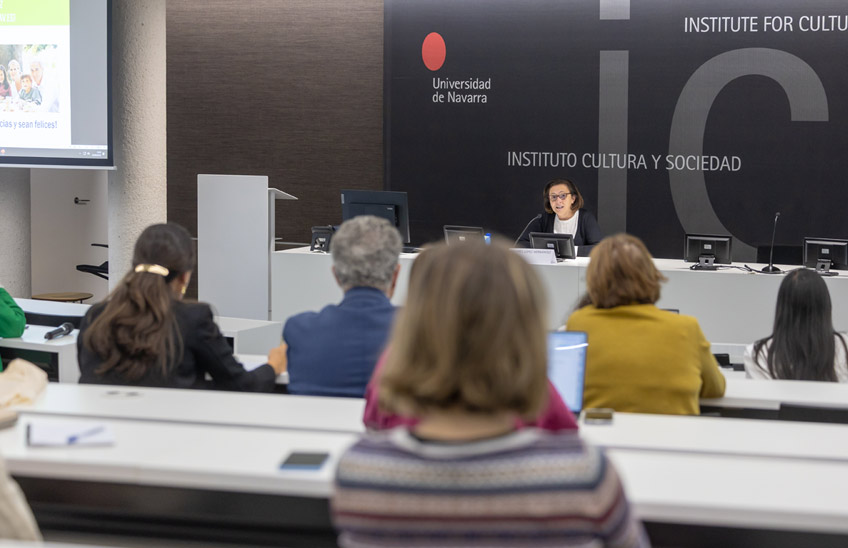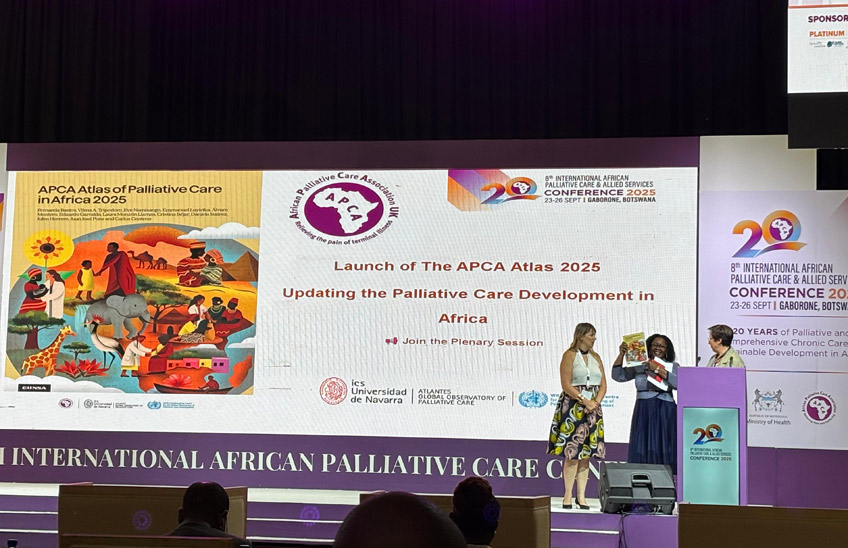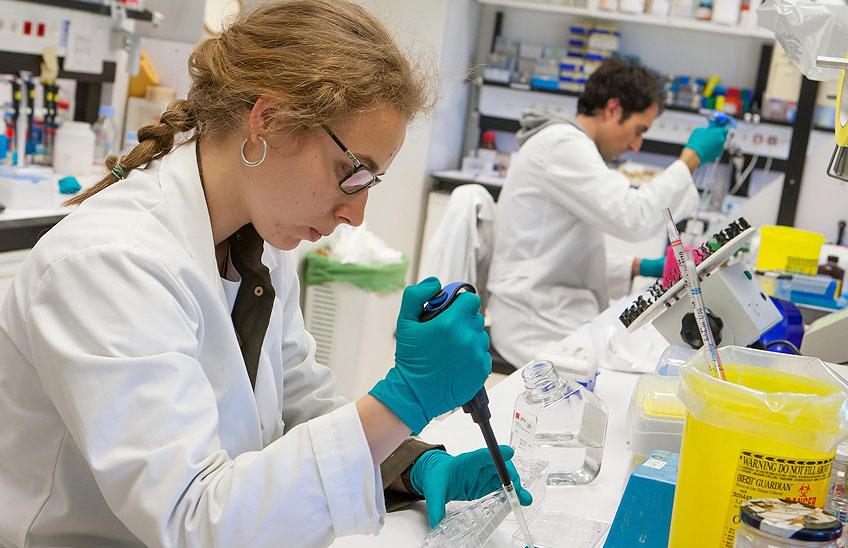Humanism in the face of violence: a group of Ecuadorian leaders is trained at ICS to combat the security crisis in their country
The participants, from different professional disciplines, received sessions on Philosophy, Economics, governance, history and international relations.

FotoManuel Castells<br>/El grupo de líderes de Ecuador y varios profesores del curso ‘Gobierno, cultura humanismo: violencia y seguridad’, organizado por el ICS.
20 | 06 | 2025
Faced with the unprecedented security crisis that Ecuador is currently experiencing, a group of Ecuadorian leaders is committed to humanistic leadership to combat it. With the goal of training in different disciplines, they have participated in the course 'Government, culture, humanism: violence and security', developed by the Institute for Culture and Society (ICS) of the University of Navarra, under the coordination of Montserrat Herrero, principal investigator of group 'Religion and Civil Society'.
Economist Juan Francisco Rumbea, Ecuador's Vice Minister of Industries during the government of Guillermo Lasso (2021-2023) and promoter of the initiative, explains that his goal is to develop a think tank that will jointly seek solutions to the serious problem of violence that Ecuador has been experiencing since 2021. "We seek to contribute ideas to address the topic of security and violence, a complex topic that, in Ecuador, is a matter of life and death," explains Rumbea, who also holds a doctorate from the University of Navarra.
Rigorous perspective
To tackle it, he considers it essential "to be trained from a rigorous and philosophical perspective" and defends that "the fight against organized crime must also be worked on from the point of view of thought". In this sense, he stresses that the University of Navarra is the ideal place, as it is "a school with a philosophical tradition that addresses the problems in an appropriate way. A good theory is the best internship, so thinking about strategy is the most convenient thing to do before disembarking.
The businessman, broadcaster and economist Otto Sonnenholzner, vice president of Ecuador for the Assembly from 2018 to 2020, was one of the participants and emphasizes that they all share the conviction of joining forces to contribute to the resolution of the problem: "The University has given us a space to see the status from another perspective, a potential academic framework and support on this path". He also values "the level both in the humanistic sciences and in the technical aspects, and the quality and commitment of the professors".
Stephanie Macías, director of Buro Estratégico and consultant, points out that the group seeks "to be part of the solution and find a path within the different specialties": "We must present solutions that consider the roots of the problem. We believe in the family, in the sense of belonging and in offering human beings the virtues and values they need to move forward. And for this we need tools, Education and a complete and humanistic approach. Violence with more violence gets us nowhere.
For lawyer Henry Cucalón, Ecuador's presidential candidate in 2025 and also minister in 2023 during the Lasso government, he points out that "the best place to go to the core of the strength of ideas in Philosophy, law, Economics and security is a think tank like the University". About the course, he values "the level of depth and sharpness of the professors' analysis", as well as the opportunity to generate discussion: "There has been a great group dynamic with the professors. There has been a lot of sharing and conversation throughout the week". A space for critical thinking and reflection with a common mission statement .
The participants, leaders in sectors such as politics, business, Economics and law, spent a week in Pamplona to receive sessions on Philosophy, Economics, governance, history, anthropology and international relations, taught by University professors: Jaume Aurell, Alfredo Cruz, David Echeverry, Javier Gil, Montserrat Herrero, Elena Íñigo, Raquel Lázaro, Juan Luis Lorda, Pablo Pérez and Sandra Polanía-Reyes. They also held a colloquium with Argentine political scientist Agustín Laje.



